The United Nations (UN) fears the coup in Myanmar will worsen the plight of some 600,000 Rohingya Muslims still in the country.
Myanmar's military seized power on Monday in a coup against the democratically elected government of Aung San Suu Kyi, who was detained along with other political leaders in early morning raids.
Hundreds of members of parliament remained confined inside their government housing in the country's capital on Tuesday, in spite of a plea for the military to honour the results of last November's election and release them.
One legislator said they had all spent a sleepless night worried they might be taken away, but were otherwise OK.
He said they were able to speak with one another inside the compound and communicate with their constituencies by phone, but were not allowed to leave the complex in Naypyitaw, as police were inside and soldiers outside.
Meanwhile, ahead of a UN Security Council meeting to discuss the crisis today, UN spokesman Stephane Dujarric has called for the worsening situation of the Rohingya to be brought to the fore.
He said: "There are about 600,000 Rohingya that remain in Rakhine State, including 120,000 people who are effectively confined to camps, they cannot move freely and have extremely limited access to basic health and education services.
"Our fear is that these events may make the situation worse for them."
A 2017 military crackdown in Myanmar's Rakhine State sent more than 700,000 Rohingya Muslims fleeing into Bangladesh, where they are still stranded in refugee camps.
At the time, UN Secretary-General Antonio Guterres and Western countries accused the Myanmar military of ethnic cleansing, which it denied.
The 15-member UN Security Council - of which the UK currently holds the presidency - plans to discuss Myanmar in a closed meeting on Tuesday.
UK ambassador to the UN Dame Barbara Woodward said the council wanted to address "long-term threats to peace and security" by working closely with Myanmar's Asian and ASEAN (Association of Southeast Asian Nations) neighbours.
China, backed by Russia, shielded Myanmar from any significant council action after the 2017 military crackdown.
China and Russia are council veto powers along with France, Britain and the US, which means they can block any "substantive" resolution.
Chinese foreign ministry spokesman Wang Wenbin said the government in Beijing was in touch with "all sides" about
the security council meeting and the international community's actions should contribute to "a peaceful resolution".
The Myanmar army said it had detained Ms Suu Kyi and others in response to "election fraud". They handed power to military chief Min Aung Hlaing and say they will impose a state of emergency for one year.
The coup is a dramatic reversion for Myanmar, which was emerging from decades of strict military rule and international isolation that began in 1962.
It presents a test for the international community, which had ostracised Myanmar while it was under military rule, then enthusiastically embraced Ms Suu Kyi's government as a sign the country was finally on the path to democracy.
US President Joe Biden called the military's actions "a direct assault on the country's transition to democracy and the rule of law" and said Washington would not hesitate to restore sanctions.
"The United States will stand up for democracy wherever it is under attack," he said in a statement.
The UN has long had a presence in Myanmar - its security council envoys travelled there in April 2018 and met separately with Ms Suu Kyi and Min Aung Hlaing in light of the Rohingya crisis.
The takeover marks a shocking fall from power for Ms Suu Kyi, a Nobel peace laureate who had lived under house arrest for years as she tried to push her country toward democracy, and then became its de facto leader after her party won elections in 2015.
Ms Suu Kyi had been a fierce critic of the army during her years in detention, but after her shift from democracy icon to politician, she needed to work with the generals, who despite allowing elections had never fully given up power.
While the 75-year-old has remained popular at home, Ms Suu Kyi's deference to the generals - going so far as to defend their crackdown on Rohingya Muslims that the US and others have labelled genocide - has left her reputation tarnished abroad.
https://news.google.com/__i/rss/rd/articles/CBMibWh0dHBzOi8vbmV3cy5za3kuY29tL3N0b3J5L215YW5tYXItY291cC1mZWFycy1ncm93LWZvci02MDAtMDAwLXJvaGluZ3lhLW11c2xpbXMtc3RpbGwtaW4tdGhlLWNvdW50cnktMTIyMDYyMjLSAXFodHRwczovL25ld3Muc2t5LmNvbS9zdG9yeS9hbXAvbXlhbm1hci1jb3VwLWZlYXJzLWdyb3ctZm9yLTYwMC0wMDAtcm9oaW5neWEtbXVzbGltcy1zdGlsbC1pbi10aGUtY291bnRyeS0xMjIwNjIyMg?oc=5
2021-02-02 11:02:52Z
52781337950393
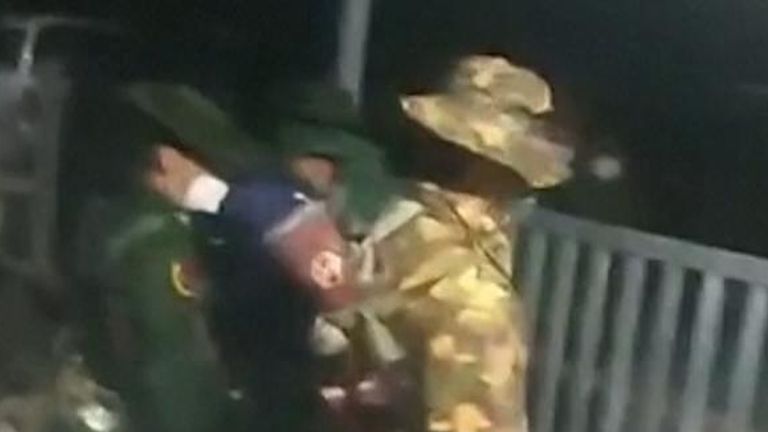
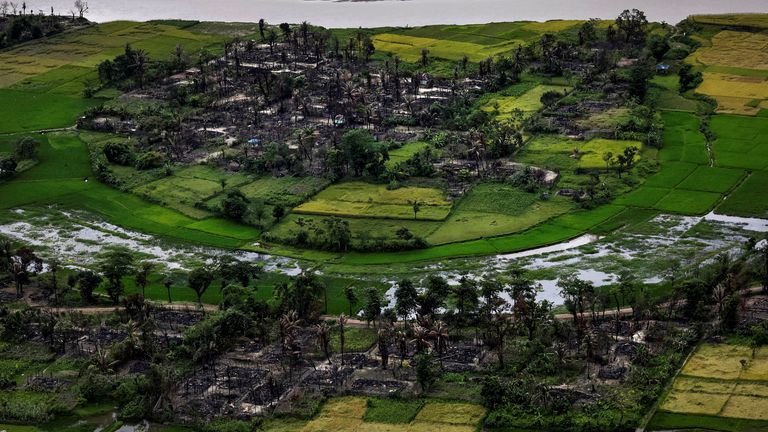
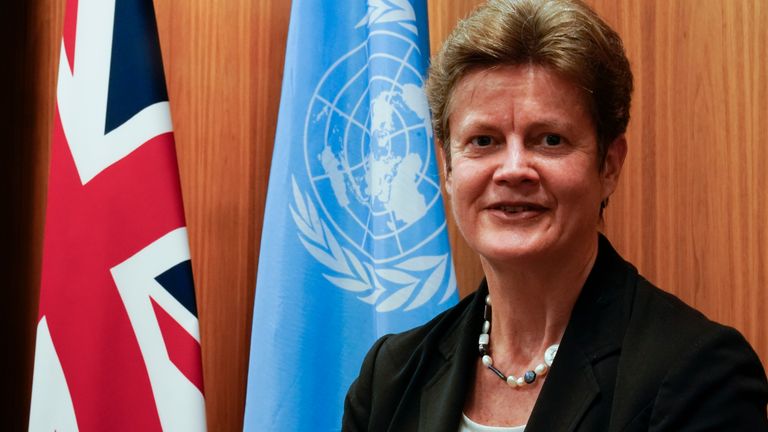
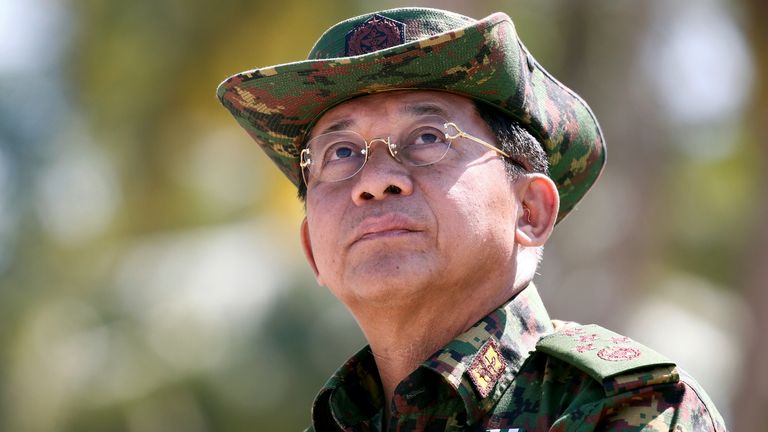
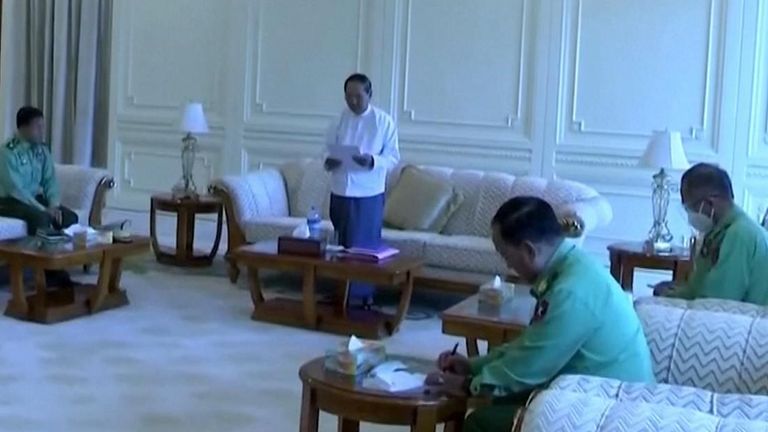
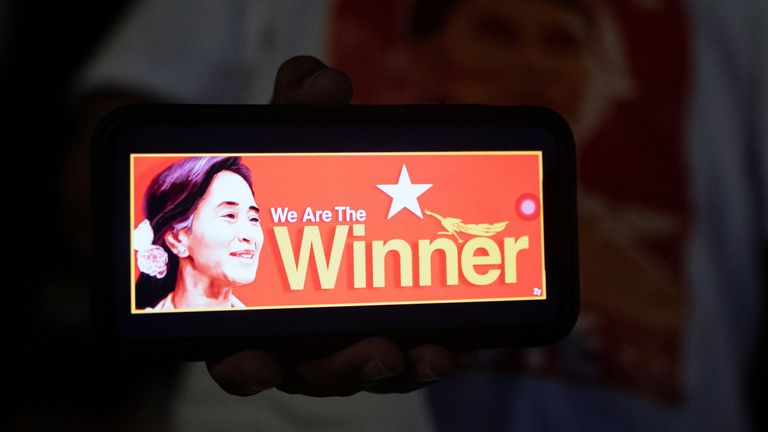
Tidak ada komentar:
Posting Komentar